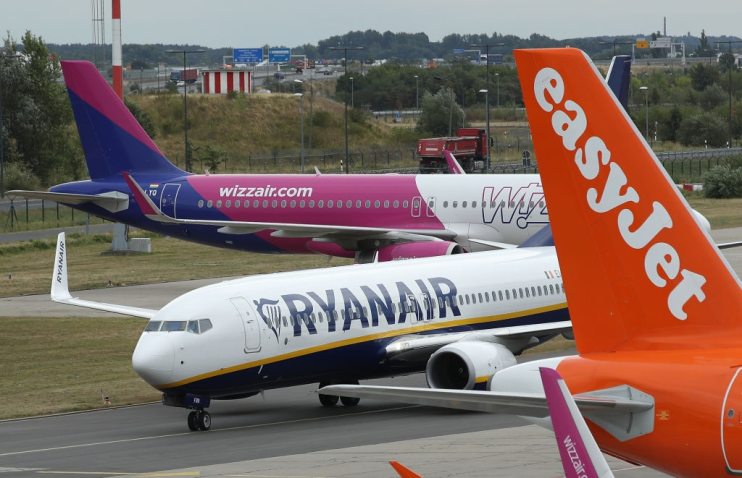What are ghost flights and what is the debacle around them?

EasyJet’s chief executive Johan Lundgren this morning told investors the airline was in favour of airport slot rules going back to “a normalised delineation,” saying the carrier will not be forced to operate ghost flights to retain its slots.
“We should remember that the reason why [governments] made these exceptions was because restrictions were in place and airlines could not operate the capacity that was required,” he added. “If they remove restrictions, there’s really no reason why they shouldn’t move back to the normal set of rules around it.”
“It’s mostly legacy airlines who arguing for this across Europe. You have to ask them why they think they need to have them in place when restrictions are removed.”
What have ghost flights got to do with airport slots?
Lundgren’s comments mark the latest in the ghost flights/airport slots debacle, which has put low-cost carriers against legacy airlines and aviation against environmentalists for quite some time.
The debacle originated in December when Carsten Spohr, chief executive of aviation giant Lufthansa, told German newspaper Frankfurter Allgemeine Sonntagszeitung the airline was forced to operate thousands of half-empty – also called ghost – flights just to retain its airport slots under EU rules.
“Because of the reduced demand in January, we even would have canceled considerably more flights. But in winter we will have to carry out 18,000 extra, unnecessary flights, just to secure our take-off and landing rights,” he said.
Introduced to foster a healthy market competition, airport slot rules in the EU required airlines to use their airport slots 80 per cent of the time to retain them the next year.
When the pandemic hit, the European Commission decided to scrap the rule altogether to help the sector, but as the industry slowly started to get back on its feet, usage levels were gradually increased to 50 per cent.
“For this winter season, we reduced slot requirements from 80 to 50 per cent, meaning that currently air companies will only have to use 50 per cent of a given slot series to preserve their rights,” a European Commission spokesperson told City A.M. on 12 January.
In December, the commission decided to extend the relief, increasing the percentage from 50 per cent to 64 per cent from March until October.
Cause for contention
A few weeks after Spohr’s comments, Ryanair’s boss Michael O’Leary accused the German airline of mentioning ghosts flights just to protect its slots.
“The solution to Lufthansa’s ‘ghost flights’ problem is a simple one – just sell these seats to consumers,” said O’Leary while urging the commission to ignore the airline’s claims. “Lufthansa loves crying crocodile tears about the environment when doing everything possible to protect its slots.
“If Lufthansa doesn’t want to operate “ghost flights” to protect its slots, then simply sell these seats at low fares, and help accelerate the recovery of short and long haul air travel to and from Europe.”
O’Leary’s comments were reiterated a day later by Wizz Air’s chief executive Jozsef Varadi, who told said legacy airlines should not retain their slots if unable to use them.
“Why are they protected for the benefit of legacy carriers,” he told Reuters. “This is a way of distorting the market further by allowing access to certain airlines at the detriment to others who could actually do more there, more efficiently.”
Ghosts flights have also attracted criticisms from environmentalists, as they are believed to have become a main source of pollution.
According to a recent Greenpeace analysis, EU ghost flights could generate up to 2.1 million tonnes of CO2 this winter.
“Transport emissions are skyrocketing,” Herwig Schuster, a spokesperson for Greenpeace’s European Mobility for All campaign, told the Guardian.
“It would be irresponsible of the EU not to take the low-hanging fruit of ending ghost flights and banning short-haul flights where there’s a reasonable train connection.”
In the UK, a petition calling on the UK Government to end ghost flights by changing landing slot rights has been signed by more than 6,700 people.
“Airlines have been flying planes empty to retain their landing slots. These ‘ghost’ flights are a shocking waste of resources and a needless source of emissions,” read the petition. “At a time of climate emergency we need to drastically reduce our fossil fuel use, and in the context of our steadily dwindling carbon budget, it beggars belief that planes fly empty.”